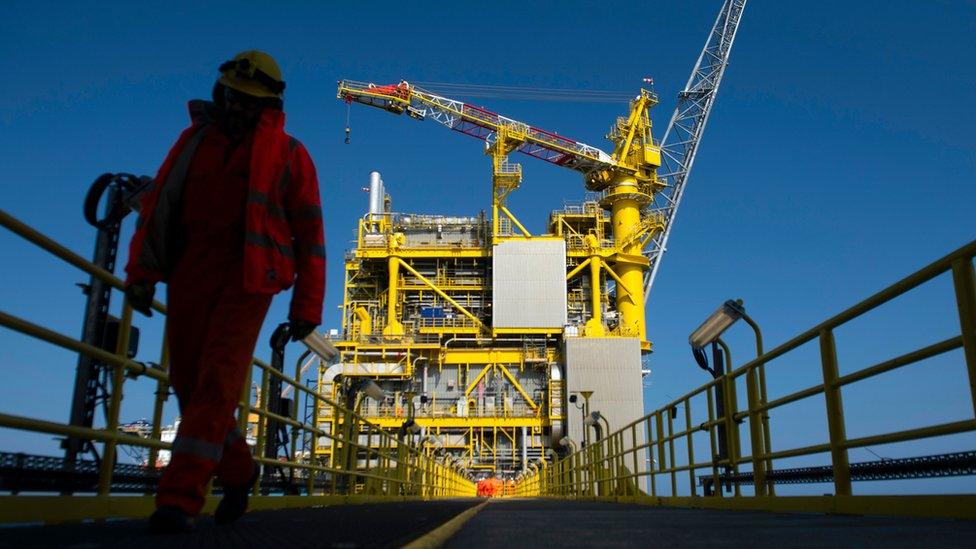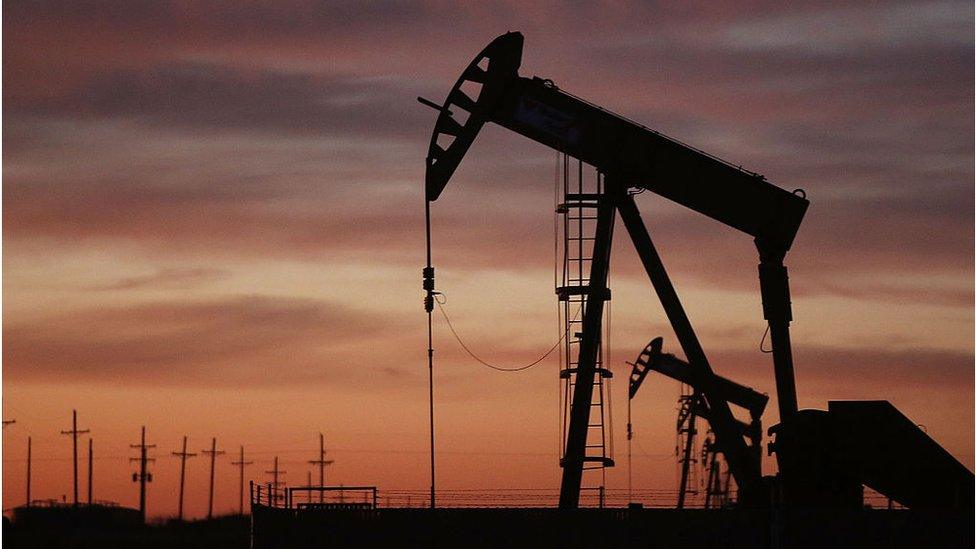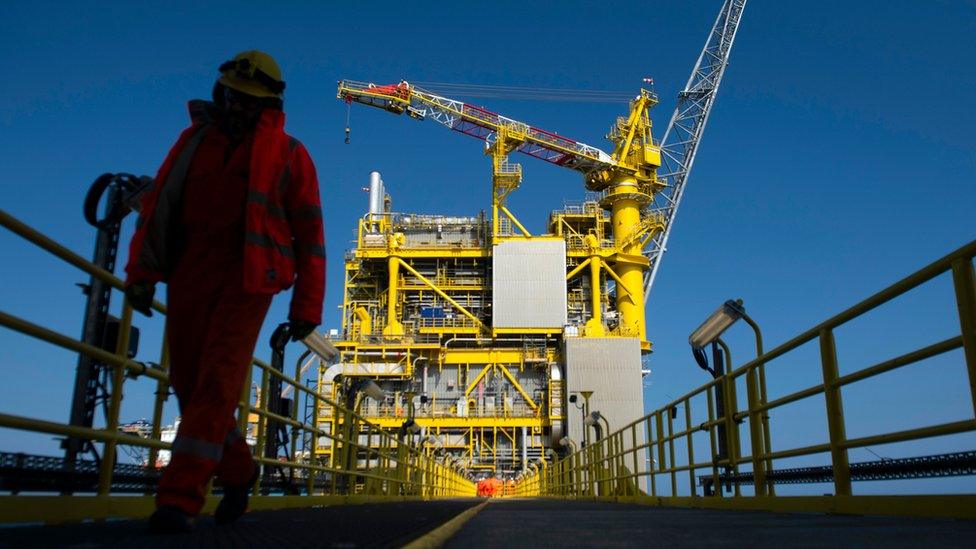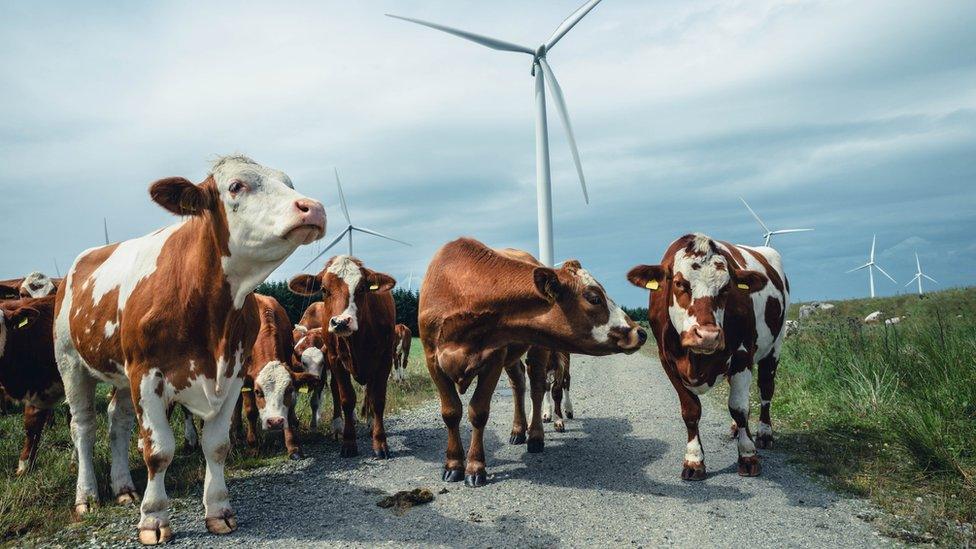Shell reconsiders its exit from oil field off Shetland
- Published
- comments

Energy giant Shell is reconsidering its recent decision to pull investment from a large new UK oil field, the BBC understands.
In December, Shell said the economic case - along with possible regulatory delays - meant it was withdrawing from the Cambo oil field, which is 75 miles off the west coast of Shetland.
At the time the price of crude oil was under $70 a barrel.
It has since touched double that price and has consistently been over $100.
Oil prices are volatile because of fears that Russian oil will either be shunned, or cut off.
The desire to reduce European dependence on Russian exports has also made the UK government willing to fast track investment in domestic fossil fuels.
Shell has not yet sold its interests in the field. Sources close to the matter said that, while the company's official position had not changed, it did acknowledge that the economic, political and regulatory environment had changed enormously since the decision was announced just three months ago.
Shell last week resubmitted an application to develop the Jackdaw North Sea gas field - off the east coast of Scotland - having had it turned down in October by environmental regulators.
The company said it had modified the chemical processes involved in the gas extraction to meet regulatory requirements.
The UK government said investment decisions are a commercial matter for the companies involved, but it remains committed to the domestic offshore oil and gas sector as the UK transitions to net zero greenhouse gas emissions.
The UK's North Sea regulator plans later this year to hold the first oil and gas licensing round for new fields since 2020.
Shell's decision last December to pull out of the project was taken two weeks after COP26 - a high profile global climate conference in Glasgow - and was roundly welcomed by environmental campaigners, who described Shell's decision as a hammer blow to the project.

The Cambo oil field


Tessa Khan, director of environmental group Uplift, said new oil and gas assets like Cambo would not help bring down prices or secure UK energy security of supply.
"Contrary to what [Business Secretary] Kwasi Kwarteng has said, this isn't 'our oil'," she said.
"It belongs to Shell who will sell it abroad to the highest bidder. According to the government's own figures, 80% of North Sea oil is put in tankers and exported.
"What it will do is produce carbon emissions equivalent to 18 coal-fired power stations, when we are already experiencing the impacts of the climate crisis. Cambo makes as little sense today as it did last year."
The government is due to unveil its energy supply strategy early next week.
Related topics
- Published14 February 2022

- Published10 December 2021

